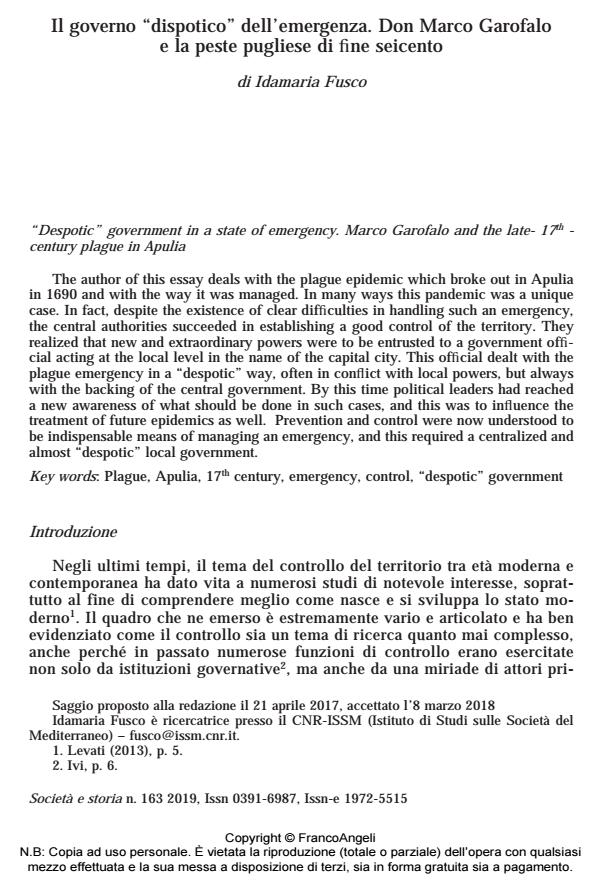"Despotic" government in a state of emergency. Marco Garofalo and the late- 17th - century plague in Apulia
Journal title SOCIETÀ E STORIA
Author/s Idamaria Fusco
Publishing Year 2019 Issue 2019/163
Language Italian Pages 34 P. 23-56 File size 122 KB
DOI 10.3280/SS2019-163003
DOI is like a bar code for intellectual property: to have more infomation
click here
Below, you can see the article first page
If you want to buy this article in PDF format, you can do it, following the instructions to buy download credits

FrancoAngeli is member of Publishers International Linking Association, Inc (PILA), a not-for-profit association which run the CrossRef service enabling links to and from online scholarly content.
The author of this essay deals with the plague epidemic which broke out in Apulia in 1690 and with the way it was managed. In many ways this pandemic was a unique case. In fact, despite the existence of clear difficulties in handling such an emergency, the central authorities succeeded in establishing a good control of the territory. They realized that new and extraordinary powers were to be entrusted to a government official acting at the local level in the name of the capital city. This official dealt with the plague emergency in a "despotic" way, often in conflict with local powers, but always with the backing of the central government. By this time political leaders had reached a new awareness of what should be done in such cases, and this was to influence the treatment of future epidemics as well. Prevention and control were now understood to be indispensable means of managing an emergency, and this required a centralized and almost "despotic" local government.
Keywords: Plague, Apulia, 17th century, emergency, control, "despotic" government
Idamaria Fusco, Il governo "dispotico" dell’emergenza. Don Marco Garofalo e la peste pugliese di fine seicento in "SOCIETÀ E STORIA " 163/2019, pp 23-56, DOI: 10.3280/SS2019-163003